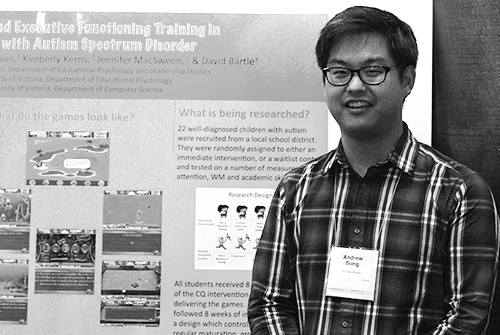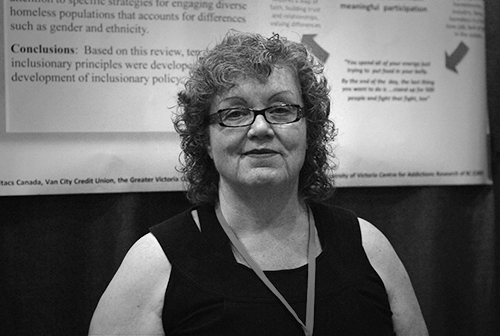Andrina Fawcett http://twitter.com/thecardigangirl
Tuesday afternoon students showcased some of the amazing scholarship they have been producing in relationship with the community at the Congress 2013 Expo Space.
Gaming to gain problem solving skills
Teacher and Educational Psychology PhD student Andrew Sung looked at executive function training in children with autism and spectrum disorder.
Challenges with executive functioning result in problem solving, attention, and working memory difficulties in autistic children. However, as Andrew explained, “if you can improve an autistic child's attention and problem solving skills then that can lead to better school readiness and perhaps better social communication.” With this idea in mind, Andrew, in partnership with his team, began work on instructional material that would aid in executive functioning improvements. The result was Carribean Quest, which is part of a 5 game suite. The video game helps to stimulate brain plasticity, and "allows us to train our brains through practice” explained Andrew. Students are led through the game with the help of an interventionist, who coaches them in metacognitive strategies. The interventionist acts as a mediator, providing help to the student when they run into problems and giving them tips to help achieve the next level.
"[Homelessness] is a full time job": pathways to meaningful dialogue
Trudy Norman hopes to end homelessness through inclusionary dialogue with the very individuals who are affected by extreme poverty. Through her research with Bernadette Pauly, Hilary Marks and Dakota Palazzo, 10 draft principals were constructed for inclusive dialogue. Two of the draft principles for inclusionary practice are that “people who experience homelessness have knowledge, insights, and skills to add to conversations on homelessness not available to people without such experiences,” and that “organizations of people who experience homelessness should be supported to take active roles in the development of policy, practices and services assisting people who are homeless". “These principals are nice,” Trudy Norman states, “but the real issue was what do the people have to say about them”.
By consulting 62 individuals to share their experiences, “We saw that they were being caught in what we call the 'industry of homelessness',” Norman states. “It’s is a full time job” she continues, “if you want shelter you need to be at a certain place at a certain time to line up, and dinner, breakfast and lunch are all the same. In many cases these individuals don’t have a way to get between locations, so it takes all day to get basic needs met”.
So, where will Trudy go from here? “The people who are living this – they are the experts, so with their feedback we are hoping to do a phase 3 of the study which will rework the principles for inclusion to make them more meaningful and useful. We are also hoping to develop a framework for inclusion."


